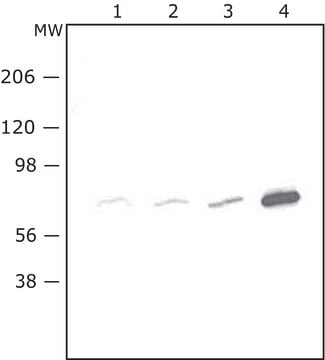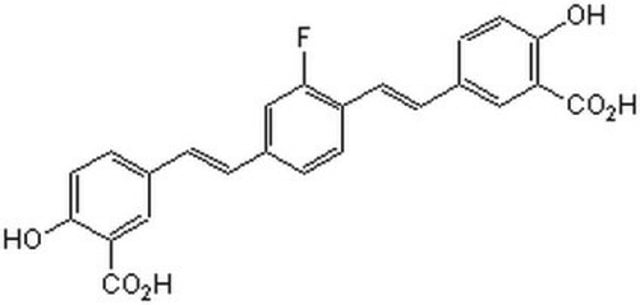P0497
Anti-PMP70 antibody produced in rabbit

affinity isolated antibody, buffered aqueous solution
Synonym(s):
Anti-70 kDa Peroxisomal membrane Protein, Anti-ABCD3, Anti-PXMP1
About This Item
Recommended Products
biological source
rabbit
conjugate
unconjugated
antibody form
affinity isolated antibody
antibody product type
primary antibodies
clone
polyclonal
form
buffered aqueous solution
mol wt
antigen 70 kDa
species reactivity
human, mouse, rat
enhanced validation
independent
Learn more about Antibody Enhanced Validation
technique(s)
immunoprecipitation (IP): 1-2 μg using RIPA extract (0.5 mg) from human HepG2 cells
indirect immunofluorescence: 4-8 μg/mL using mouse NIH3T3 cells
western blot (chemiluminescent): 0.5-1 μg/mL using whole extracts of rat PC12 cells or rat kidney extract or rat liver extract
UniProt accession no.
shipped in
dry ice
storage temp.
−20°C
target post-translational modification
unmodified
Gene Information
human ... ABCD3(5825)
mouse ... Abcd3(19299)
rat ... Abcd3(25270)
Related Categories
General description
Immunogen
Application
- immunocytochemistry
- immunostaining
- immunofluorescence
- western blotting
- immunoprecipitation
Biochem/physiol Actions
Physical form
Disclaimer
Not finding the right product?
Try our Product Selector Tool.
related product
Storage Class Code
10 - Combustible liquids
WGK
nwg
Flash Point(F)
Not applicable
Flash Point(C)
Not applicable
Certificates of Analysis (COA)
Search for Certificates of Analysis (COA) by entering the products Lot/Batch Number. Lot and Batch Numbers can be found on a product’s label following the words ‘Lot’ or ‘Batch’.
Already Own This Product?
Find documentation for the products that you have recently purchased in the Document Library.
Articles
Centrifugation separates organelles based on size, shape, and density, facilitating subcellular fractionation across various samples.
Our team of scientists has experience in all areas of research including Life Science, Material Science, Chemical Synthesis, Chromatography, Analytical and many others.
Contact Technical Service







